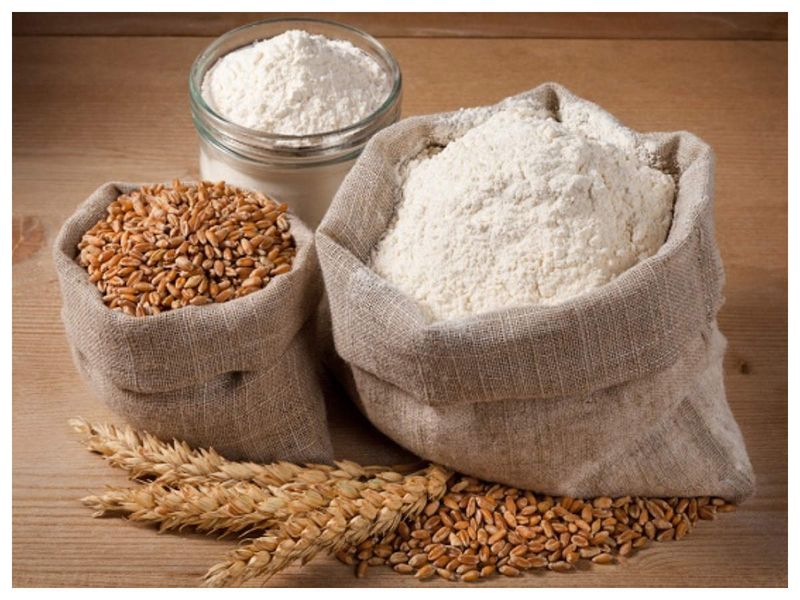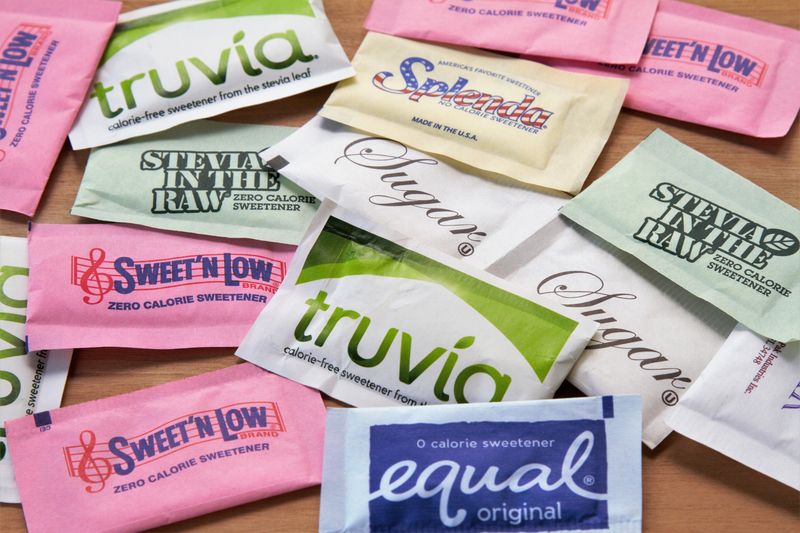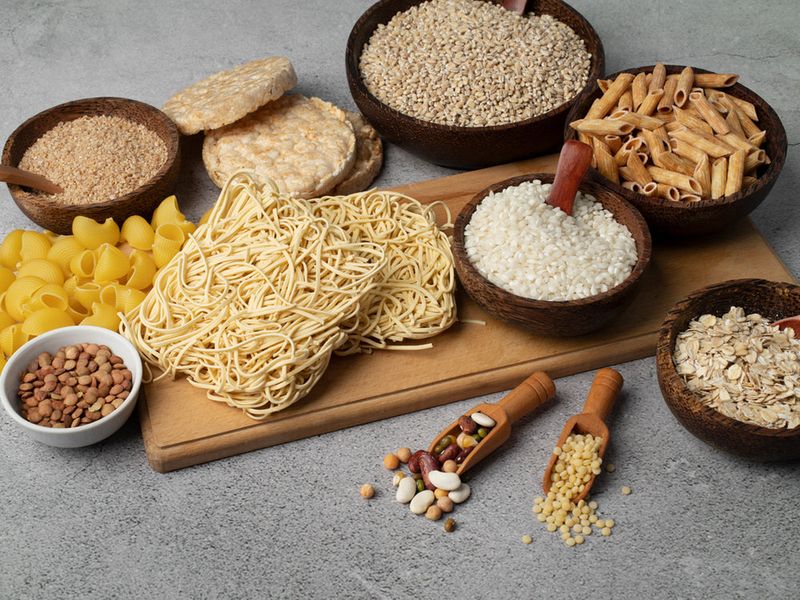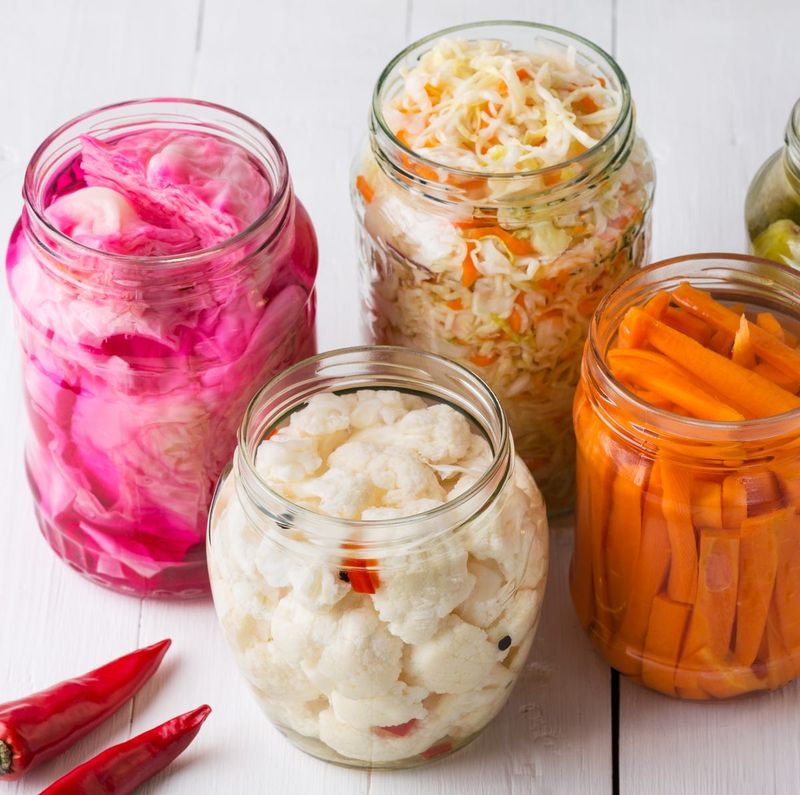Ever wondered why your back hurts after certain meals? The connection between diet and pain isn’t just in your head—it’s backed by science.
What you eat directly affects inflammation levels in your body, potentially triggering or intensifying back pain. While you’re reaching for that pain reliever, the real solution might be hiding in your kitchen.
1. Sugar-Loaded Treats

Your favorite cookies and candies aren’t just expanding your waistline—they’re secretly sabotaging your spine! Sugar triggers a cascade of inflammatory responses throughout your body, creating a perfect storm for back pain flare-ups.
Swap those sugary bombs for fresh berries or dark chocolate (70%+ cacao). Your taste buds might protest initially, but your backbone will send thank-you notes within days.
2. Processed Red Meat

That sizzling bacon might smell like heaven, but your spine considers it the devil’s work. Processed meats—bacon, sausage, hot dogs—contain chemical preservatives that trigger inflammatory responses faster than you can say “backache.”
The nitrates used for preservation convert to nitrosamines in your body, compounds that actively promote inflammation in tissues—including those supporting your spine. Craving protein? Grab some wild-caught salmon or beans instead.
3. Dairy Overload

Got milk? More like got back pain! For many people, dairy doesn’t just cause digestive troubles—it launches a full-scale inflammatory assault on your spine.
The casein protein in dairy products can trigger inflammatory responses in sensitive individuals. Your body’s struggle to process dairy can manifest as increased inflammation around spinal discs. Try almond milk or cashew cheese alternatives for two weeks and track your pain levels.
4. Alcohol’s Hidden Impact

That “relaxing” glass of wine might be the very reason you’re wincing every time you bend over. Alcohol dehydrates your entire body—including those precious spinal discs that need moisture to cushion your vertebrae properly.
When you drink, your body prioritizes processing the alcohol, disrupting normal inflammatory responses and potentially amplifying pain signals. Limit yourself to one drink daily (or better yet, swap that cocktail for sparkling water with lime).
5. Nightshade Vegetables

Plot twist: some “healthy” foods might be your back’s worst enemies! Nightshades—tomatoes, potatoes, eggplants, and peppers—contain solanine, a compound that aggravates arthritis and joint pain in sensitive individuals.
These seemingly innocent vegetables can trigger inflammatory responses in your body that specifically target joints and surrounding tissues. Try a two-week nightshade detox. Replace tomatoes with carrots in sauces, swap potatoes for sweet potatoes, and choose celery over peppers for snacking.
6. Trans Fat Fiasco

Fast food doesn’t just expand your waistline—it’s literally breaking your back! Trans fats, lurking in fried foods and packaged snacks, are inflammation superchargers that target the very tissues supporting your spine.
Check ingredient labels for “partially hydrogenated oils”—the sneaky chemical name for these pain-promoting fats. Replace your drive-thru habits with homemade alternatives using olive oil, and watch as your back pain mysteriously begins to subside.
7. Refined Flour Products

White bread, pasta, and those irresistible pastries aren’t just empty calories—they’re back pain in disguise! Refined carbohydrates spike blood sugar faster than a roller coaster, triggering inflammatory responses throughout your body.
Make the switch to whole grain alternatives gradually—try quinoa pasta instead of regular, or sprouted grain bread instead of white. Your taste buds will adjust within weeks, while your spine might feel relief much sooner.
8. Artificial Sweeteners

Think you’re doing your body a favor with sugar-free options? Think again! Artificial sweeteners might save calories but could be sabotaging your spine. These chemical compounds disrupt gut bacteria balance, potentially triggering system-wide inflammation.
Ditch the diet sodas and artificially sweetened products. Try stevia or monk fruit as natural alternatives, or better yet, retrain your taste buds to appreciate less sweetness overall. Your microbiome—and your back—will recover with surprising speed.
9. Vegetable Oils Gone Wild

Your kitchen cabinets might harbor a major back pain culprit! Vegetable oils (corn, soybean, sunflower) contain excessive omega-6 fatty acids that, when consumed regularly, create a perfect inflammatory storm in your body.
Switch to olive oil for low-heat cooking and avocado oil for higher temperatures. Your cell membranes will gradually rebuild with healthier fats, potentially reducing back pain intensity within weeks.
10. Excessive Salt

Shake, shake, shake—and your back goes break, break, break! High sodium intake doesn’t just raise blood pressure; it disrupts calcium balance and fluid retention in tissues surrounding your spine.
Read nutrition labels obsessively—sodium hides everywhere, from bread to canned vegetables. Replace table salt with herbs and spices for flavor. Many back pain sufferers report noticeable relief within days of reducing sodium intake, especially if inflammation is their primary pain trigger.
11. Caffeine Overload

Your morning coffee addiction might be the hidden villain in your back pain story! Excessive caffeine consumption depletes essential minerals like magnesium—the very same minerals your muscles need to relax and function properly.
Try scaling back gradually—sudden caffeine withdrawal can trigger headaches that make back pain seem trivial! Replace every other coffee with herbal tea or hot water with lemon, and consider a magnesium supplement approved by your doctor.
12. Gluten-Containing Grains

That innocent-looking sandwich might be launching a stealth attack on your spine! For many people—not just those with celiac disease—gluten triggers inflammatory responses that can manifest as joint and back pain.
Try a strict 30-day gluten elimination experiment. Be vigilant—gluten hides in sauces, seasonings, and processed foods. Many patients report dramatic back pain improvement within weeks, suggesting their pain wasn’t structural but inflammatory in nature.
13. High-Fructose Corn Syrup

Soda doesn’t just expand your waistline—it’s practically a liquid jackhammer to your spine! High-fructose corn syrup (HFCS) creates metabolic chaos, triggering inflammatory responses that can intensify existing back pain.
Check ingredient labels religiously—HFCS lurks in everything from ketchup to bread. Eliminating HFCS-containing products often results in noticeable back pain reduction within 2-3 weeks, especially for people with inflammatory or arthritic conditions affecting their spine.
14. MSG And Food Additives

Chinese takeout cravings might explain your mysterious morning backaches! MSG and other flavor enhancers don’t just make food tasty—they’re excitotoxins that can hyperstimulate your nervous system and trigger inflammation.
Become a food detective—look for “monosodium glutamate,” “hydrolyzed protein,” or “natural flavors” on labels (all potential MSG sources). Cook simple meals with whole ingredients for two weeks and track your pain levels.
15. Aged Cheeses And Fermented Foods

That fancy cheese board might be sending your back into spasm! Aged cheeses and some fermented foods contain tyramine, a compound that can trigger tension headaches and muscle pain in sensitive individuals.
Tyramine forces your adrenal glands to release norepinephrine, a stress hormone that can increase muscle tension throughout your body. If you suspect sensitivity, eliminate aged cheeses (blue, cheddar, swiss), sauerkraut, kimchi, and cured meats for three weeks.

